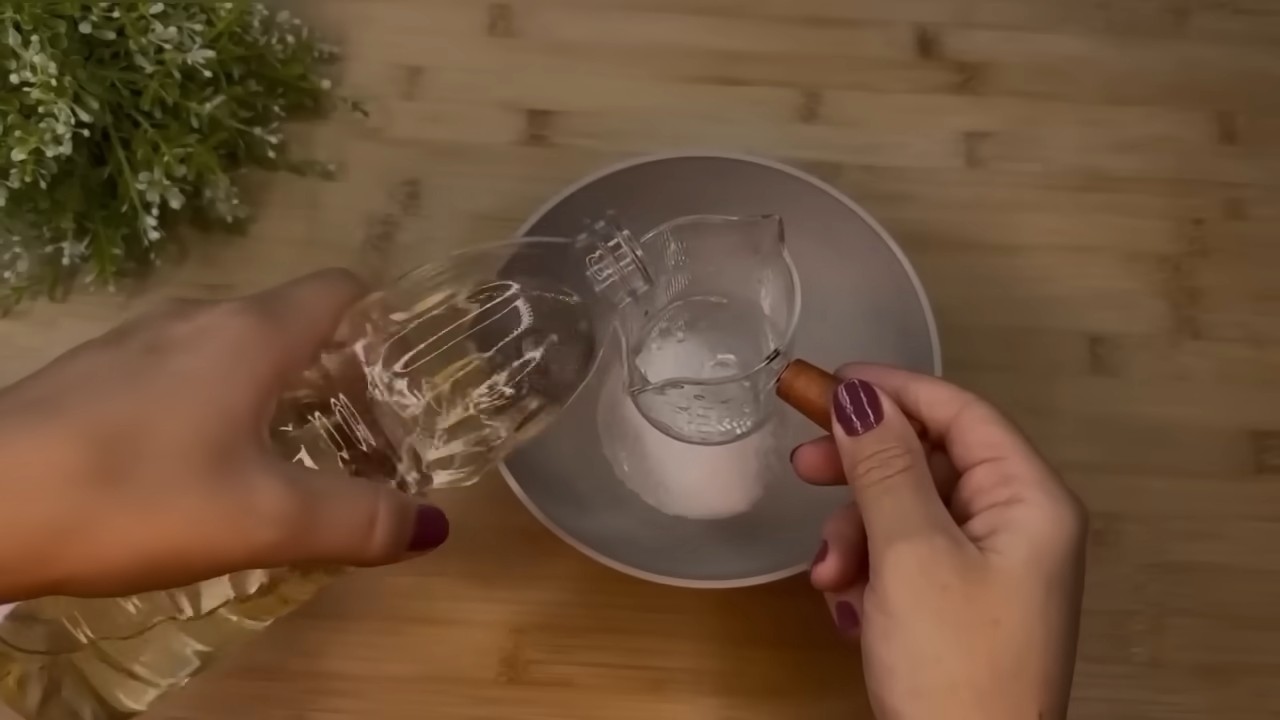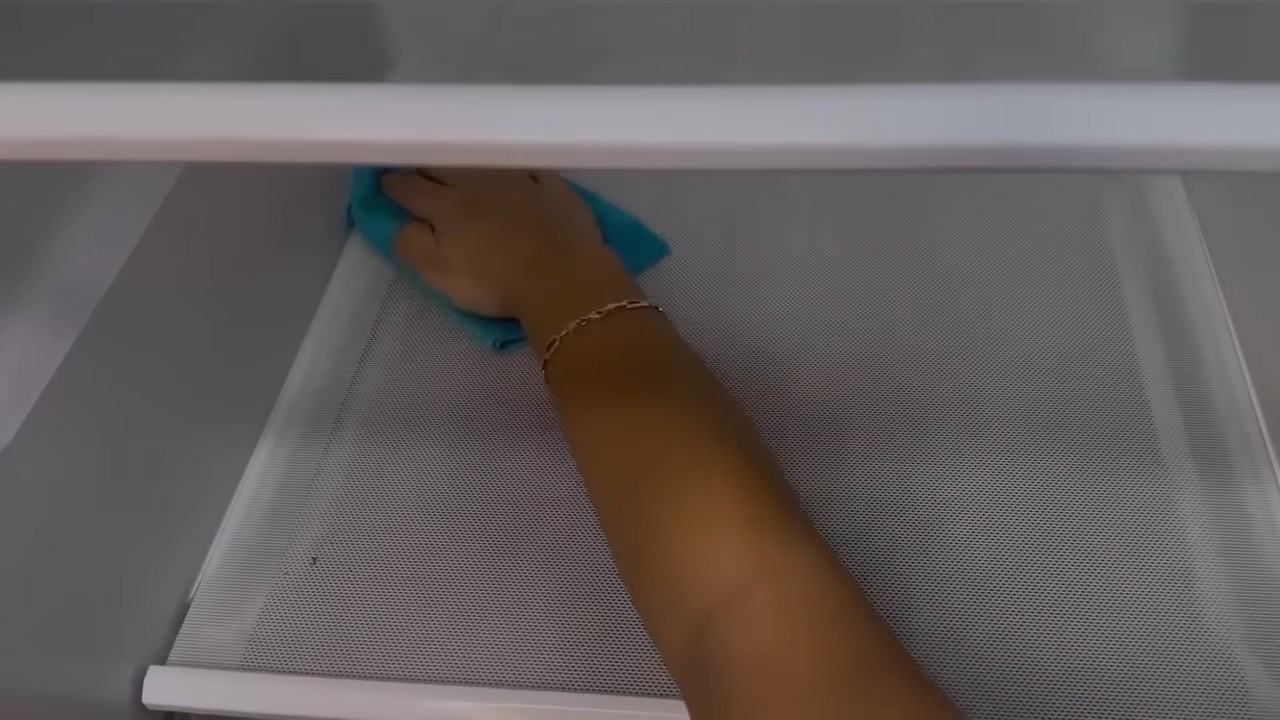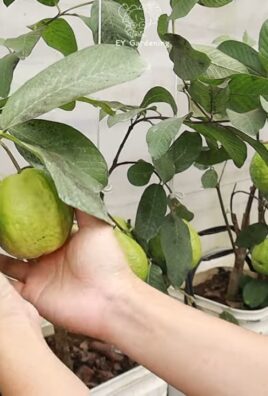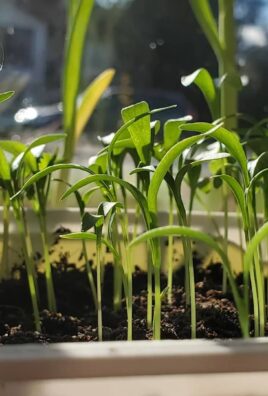Apple cider vinegar cleaner: it’s not just for salads anymore! Are you tired of harsh chemicals and expensive cleaning products cluttering your cupboards? Do you dream of a sparkling clean home without the lingering smell of artificial fragrances? Well, you’re in luck! I’m about to share a simple, effective, and surprisingly versatile DIY cleaning solution that will revolutionize your cleaning routine.
For centuries, vinegar has been a staple in households, not just for culinary purposes but also for its potent cleaning properties. From ancient civilizations using it to disinfect wounds to our grandmothers relying on it for everyday chores, vinegar has a rich history as a natural cleaner. Now, apple cider vinegar cleaner is taking center stage as a modern, eco-friendly alternative to conventional products.
In today’s world, we’re all becoming more conscious of the impact our choices have on the environment and our health. Many commercial cleaners contain harsh chemicals that can irritate our skin, pollute our air, and even harm our families. That’s why this DIY apple cider vinegar cleaner is so essential. It’s a safe, non-toxic, and budget-friendly way to keep your home clean and healthy. Plus, it’s incredibly easy to make! Get ready to ditch those expensive, chemical-laden cleaners and embrace the power of nature with this simple yet effective DIY solution. I promise, you won’t regret it!

DIY All-Purpose Apple Cider Vinegar Cleaner: Natural, Effective, and Budget-Friendly!
Hey there, fellow DIY enthusiasts! I’m so excited to share my go-to recipe for an all-purpose cleaner that’s not only incredibly effective but also completely natural and super affordable. Forget those harsh chemicals and expensive store-bought cleaners – we’re going green (and saving some green!) with the power of apple cider vinegar (ACV).
This cleaner is fantastic for a wide range of surfaces, from countertops and sinks to floors and even windows. Plus, the vinegar smell dissipates quickly, leaving behind a fresh, clean scent (especially if you add essential oils, which I highly recommend!).
What You’ll Need:
Before we dive in, let’s gather our supplies. This is a pretty simple list, which is one of the things I love most about this project!
* **Apple Cider Vinegar (ACV):** The star of the show! Make sure you get the kind with “the mother” for extra cleaning power. The “mother” is a colony of beneficial bacteria that adds to the cleaning properties.
* **Water:** Distilled water is best to prevent mineral buildup, but tap water works just fine too.
* **Spray Bottle:** A clean, empty spray bottle is essential for easy application. I prefer a sturdy plastic one.
* **Essential Oils (Optional):** These are great for masking the vinegar scent and adding extra antibacterial properties. My favorites are lemon, lavender, tea tree, and eucalyptus.
* **Measuring Cup or Spoons:** For accurate measurements.
* **Funnel (Optional):** Makes pouring liquids into the spray bottle much easier and less messy.
The Basic Recipe:
This is the foundation of our all-purpose cleaner. You can adjust the ratios slightly to suit your preferences, but this is a great starting point.
* **Ratio:** 1 part Apple Cider Vinegar to 1 part Water.
Step-by-Step Instructions:
Alright, let’s get cleaning! Follow these simple steps to create your own all-purpose ACV cleaner.
1. **Prepare Your Spray Bottle:** Make sure your spray bottle is clean and dry. Any residue from previous cleaners could interfere with the effectiveness of our ACV solution. Rinse it out thoroughly with hot water and let it air dry completely.
2. **Measure the ACV:** Using your measuring cup, pour the desired amount of apple cider vinegar into the spray bottle. For a standard 16-ounce spray bottle, I usually start with 8 ounces of ACV.
3. **Add the Water:** Now, add an equal amount of water to the spray bottle. In our example, we’ll add 8 ounces of water to the 8 ounces of ACV.
4. **Add Essential Oils (Optional):** This is where you can customize your cleaner and add a pleasant scent. I usually add about 10-20 drops of essential oil per 16-ounce bottle. Start with a smaller amount and add more if you prefer a stronger scent. Remember to choose essential oils that are safe for the surfaces you’ll be cleaning.
5. **Close and Shake:** Secure the spray bottle lid tightly and shake well to combine all the ingredients. This ensures that the ACV, water, and essential oils are properly mixed.
6. **Label Your Bottle:** This is important! Label your spray bottle clearly with “All-Purpose ACV Cleaner” and the date you made it. This will prevent any confusion and ensure you know what’s inside.
Using Your All-Purpose ACV Cleaner:
Now that you’ve created your cleaner, let’s put it to work!
1. **Spray the Surface:** Hold the spray bottle a few inches away from the surface you want to clean and spray a light, even coat.
2. **Let it Sit (Optional):** For tougher stains or grime, let the cleaner sit on the surface for a few minutes before wiping. This allows the ACV to break down the dirt and grease.
3. **Wipe Clean:** Use a clean cloth or sponge to wipe the surface clean. For delicate surfaces, test the cleaner in an inconspicuous area first to ensure it doesn’t cause any damage.
4. **Dry (Optional):** If desired, you can dry the surface with a clean, dry cloth. This will help prevent water spots and leave a streak-free finish.
Specific Cleaning Applications:
This all-purpose cleaner is incredibly versatile. Here are some specific ways you can use it around your home:
* **Countertops:** This cleaner works wonders on kitchen and bathroom countertops. It effectively removes spills, stains, and grime, leaving them sparkling clean. Just be cautious on natural stone surfaces like granite or marble, as the acidity of the vinegar can potentially etch the surface over time. Test in an inconspicuous area first!
* **Sinks:** Say goodbye to soap scum and water spots! Spray the cleaner in your sinks, let it sit for a few minutes, and then scrub with a sponge or brush. Rinse thoroughly with water.
* **Floors:** This cleaner is safe for most hard floors, including tile, linoleum, and vinyl. Add about 1/4 cup of the cleaner to a bucket of warm water and mop as usual. Again, avoid using it on natural stone floors.
* **Windows and Mirrors:** Achieve streak-free shine with this cleaner! Spray it on your windows and mirrors, and then wipe clean with a microfiber cloth.
* **Appliances:** Clean the exterior of your appliances with this cleaner to remove fingerprints, smudges, and food splatters.
* **Cutting Boards:** Sanitize your cutting boards with this cleaner after each use. Spray the cleaner on the cutting board, let it sit for a few minutes, and then rinse thoroughly with water.
* **Shower Doors:** Combat soap scum and mildew on your shower doors with this cleaner. Spray the cleaner on the shower doors, let it sit for a few minutes, and then scrub with a sponge or brush. Rinse thoroughly with water.
Troubleshooting and Tips:
* **Vinegar Smell:** The vinegar smell is the biggest concern for most people. Don’t worry, it dissipates quickly! Adding essential oils can also help mask the scent. Open a window for ventilation while cleaning.
* **Cloudy Cleaner:** Sometimes, the cleaner may appear cloudy. This is perfectly normal and doesn’t affect its effectiveness. It’s usually due to the “mother” in the ACV.
* **Surface Sensitivity:** Always test the cleaner in an inconspicuous area before using it on delicate surfaces. Avoid using it on natural stone, waxed wood, or unfinished wood.
* **Storage:** Store your all-purpose ACV cleaner in a cool, dark place. It should last for several months.
* **Adjusting the Ratio:** If you find the cleaner too strong, you can dilute it further with more water. If you need more cleaning power, you can increase the amount of ACV.
Essential Oil Blends for Different Purposes:
Here are a few of my favorite essential oil blends to add to my ACV cleaner:
* **Lemon & Tea Tree (Antibacterial):** This blend is great for disinfecting surfaces and killing germs. The lemon adds a fresh, citrusy scent, while the tea tree provides powerful antibacterial properties.
* **Lavender & Eucalyptus (Relaxing & Refreshing):** This blend is perfect for cleaning bathrooms and bedrooms. The lavender promotes relaxation, while the eucalyptus provides a refreshing scent and helps clear congestion.
* **Orange & Clove (Warm & Spicy):** This blend is ideal for cleaning kitchens and dining areas. The orange adds a cheerful, citrusy scent, while the clove provides a warm, spicy aroma.
* **Peppermint & Rosemary (Invigorating & Energizing):** This blend is great for cleaning offices and workspaces. The peppermint provides an invigorating scent, while the rosemary helps improve focus and concentration.
Why I Love This DIY Cleaner:
I’ve been using this all-purpose ACV cleaner for years, and I absolutely love it! Here’s why:
* **It’s Natural:** I feel good knowing that I’m not exposing my family to harsh chemicals.
* **It’s Effective:** It cleans just as well as (if not better than) many store-bought cleaners.
* **It’s Affordable:** ACV is much cheaper than commercial cleaners.
* **It’s Versatile:** I can use it on a wide range of surfaces.
* **It’s Customizable:** I can add essential oils to create my own unique scents.
So, there you have it! My ultimate guide to making your own all-purpose apple cider vinegar cleaner. I hope you give it a try and discover the amazing benefits of this natural cleaning solution. Happy cleaning!

Conclusion
So, there you have it! Making your own apple cider vinegar cleaner is not just a cost-effective alternative to store-bought products; it’s a conscious choice for a healthier home and a greener planet. We’ve walked you through the simple steps, highlighted the incredible versatility, and debunked some common myths surrounding its use. But why is this DIY trick a must-try?
Firstly, consider the sheer power of its simplicity. With just two readily available ingredients – apple cider vinegar and water – you can create a potent cleaning solution capable of tackling a wide range of household messes. No more deciphering complicated ingredient lists filled with harsh chemicals you can’t even pronounce. You know exactly what’s going into your cleaner, giving you complete control over the ingredients used in your home.
Secondly, think about the savings! Commercial cleaners can be surprisingly expensive, especially if you’re opting for eco-friendly or natural brands. Apple cider vinegar, on the other hand, is incredibly affordable, making this DIY cleaner a budget-friendly option for everyone. You can save money while still maintaining a clean and healthy home.
Thirdly, and perhaps most importantly, is the environmental impact. By making your own cleaner, you’re reducing your reliance on plastic bottles and minimizing the amount of harmful chemicals that end up in our waterways. It’s a small change that can make a big difference in the long run.
But the benefits don’t stop there! Feel free to experiment with variations to tailor the cleaner to your specific needs and preferences. Add a few drops of your favorite essential oils, like lavender or tea tree, for a pleasant scent and added antibacterial properties. Infuse citrus peels in the vinegar for a few weeks to create a naturally fragrant and powerful degreaser. For tougher stains, try increasing the concentration of apple cider vinegar in your solution. Remember to always test on an inconspicuous area first, especially on delicate surfaces.
Don’t be afraid to get creative and personalize your apple cider vinegar cleaner!
We’ve provided you with the knowledge and the tools; now it’s time to put them into action. We wholeheartedly encourage you to try this DIY trick and experience the benefits for yourself. You might be surprised at how effective and enjoyable it is to create your own cleaning solutions.
Once you’ve given it a try, we’d love to hear about your experience! Share your tips, tricks, and variations in the comments below. Let us know what surfaces you’ve cleaned, what essential oils you’ve added, and any other insights you’ve gained along the way. Together, we can build a community of eco-conscious cleaners and share our knowledge to create healthier homes and a more sustainable future. So go ahead, embrace the power of DIY and discover the magic of apple cider vinegar cleaner!
Frequently Asked Questions (FAQ)
Is apple cider vinegar cleaner safe to use on all surfaces?
While apple cider vinegar cleaner is generally safe and effective for many surfaces, it’s crucial to exercise caution and test it on an inconspicuous area first, especially on delicate or porous materials. Avoid using it on natural stone surfaces like marble, granite, and limestone, as the acidity can etch and damage them over time. It’s also best to avoid using it on waxed furniture, as it can strip the wax finish. Always dilute the vinegar with water as recommended in the recipe, and never mix it with bleach, as this can create harmful fumes. When in doubt, consult the manufacturer’s instructions for the surface you’re cleaning.
What is the best ratio of apple cider vinegar to water for cleaning?
The ideal ratio of apple cider vinegar to water for cleaning depends on the task at hand. For general cleaning purposes, a 1:1 ratio (equal parts apple cider vinegar and water) is usually sufficient. For tougher stains or areas that require more disinfecting power, you can increase the concentration of vinegar to a 2:1 ratio (two parts apple cider vinegar to one part water). However, it’s important to remember that a higher concentration of vinegar can be more acidic and potentially damaging to certain surfaces, so always test on an inconspicuous area first.
Does apple cider vinegar cleaner have a strong smell?
Yes, apple cider vinegar does have a distinct smell that some people find unpleasant. However, the vinegar smell typically dissipates quickly after cleaning. To minimize the odor, you can add a few drops of your favorite essential oils to the cleaner, such as lavender, lemon, or tea tree oil. These essential oils not only provide a pleasant scent but also offer additional antibacterial and antifungal properties. You can also infuse citrus peels in the vinegar for a few weeks before using it to create a naturally fragrant cleaner.
Can I use apple cider vinegar cleaner to disinfect my home?
While apple cider vinegar does possess some antibacterial and antiviral properties, it’s not as potent as commercial disinfectants. It can effectively kill some common household germs, but it may not be sufficient for disinfecting surfaces that require a higher level of sanitation, such as those in hospitals or food preparation areas. For general household cleaning and sanitizing, apple cider vinegar cleaner is a good option, but for situations where thorough disinfection is necessary, consider using a stronger disinfectant.
How long does apple cider vinegar cleaner last?
Apple cider vinegar cleaner has a relatively long shelf life and can last for several months when stored properly. To maximize its lifespan, store it in a cool, dark place away from direct sunlight. A glass spray bottle is ideal for storing the cleaner, as it won’t react with the vinegar like some plastic bottles might. If you notice any changes in the color, smell, or consistency of the cleaner, it’s best to discard it and make a fresh batch.
Can I use apple cider vinegar cleaner on my hardwood floors?
Using apple cider vinegar cleaner on hardwood floors is a topic of debate. While some people swear by it, others caution against it due to the potential for damage. The acidity of the vinegar can strip the finish off hardwood floors over time, leaving them dull and susceptible to scratches. If you choose to use apple cider vinegar cleaner on your hardwood floors, it’s crucial to dilute it significantly with water (e.g., 1/4 cup vinegar to 1 gallon of water) and test it on an inconspicuous area first. Avoid using it on waxed hardwood floors, as it can remove the wax finish. Always use a damp mop, not a soaking wet one, and dry the floors thoroughly after cleaning. Alternatively, consider using a cleaner specifically designed for hardwood floors.
What are some other uses for apple cider vinegar cleaner besides general cleaning?
Apple cider vinegar cleaner is incredibly versatile and can be used for a variety of purposes beyond general cleaning. It can be used to clean windows and mirrors, leaving them streak-free. It can also be used to deodorize drains, remove hard water stains, and clean coffee makers. Some people even use it as a natural weed killer in their gardens. The possibilities are endless!
Is there anything I should not mix with apple cider vinegar cleaner?
Yes, it’s crucial to avoid mixing apple cider vinegar cleaner with certain substances, particularly bleach. Mixing vinegar with bleach can create chlorine gas, a toxic and potentially deadly gas. It’s also best to avoid mixing vinegar with hydrogen peroxide, as this can create peracetic acid, which can be irritating to the skin, eyes, and respiratory system. Always use apple cider vinegar cleaner on its own or with other safe ingredients like essential oils or baking soda.





Leave a Comment